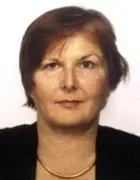Research Areas
Maria-Elisabeth Michel-Beyerle's scientific work focuses on charge transfer processes in the condensed phase, ranging from molecular crystals and electron donor/acceptor compounds in solution to biological systems, proteins and DNA. In 1976 she recognized the importance of spin dynamics in radical pair recombination and its origin in hyperfine interactions by providing the first evidence of this effect via its characteristic dynamics in an external magnetic field, thus laying the foundations for a flourishing field of spin chemistry in the form of Mary spectroscopy, whose namesake she is. Work on magnetic field-dependent electron transfer processes found its preliminary conclusion in the observation of spin movements on the picosecond time scale, which were three orders of magnitude faster than anything previously observed. Fascinated by the function of the photosynthetic reaction center in converting light into chemical energy, she founded a very successful DFG special research center at the Technical University of Munich in 1981 with the topic “Elementary processes of photosynthesis”. In this special research area, the fastest transmembrane electron transfer steps and their energetics were identified for the first time, and the three-dimensional structure of the reaction center was elucidated in a very spectacular way and Deisenhofer, Michel and Huber were awarded the Nobel Prize in Chemistry in 1988. By pursuing unconventional experimental approaches based on model studies of artificial donor-acceptor systems in solution, it was possible to uncover the crucial parameters that determine the mechanism of charge transfer. Against this background, their work showed very early on that proton transfer in the excited state of the green fluorescent protein is the central process of this important genetic marker. Work on chromophore-protein and chromophore-DNA interactions has been continuing since November 2008 in the newly founded “Bio-FemtoLabs” at Nanyang Technological University in Singapore.
